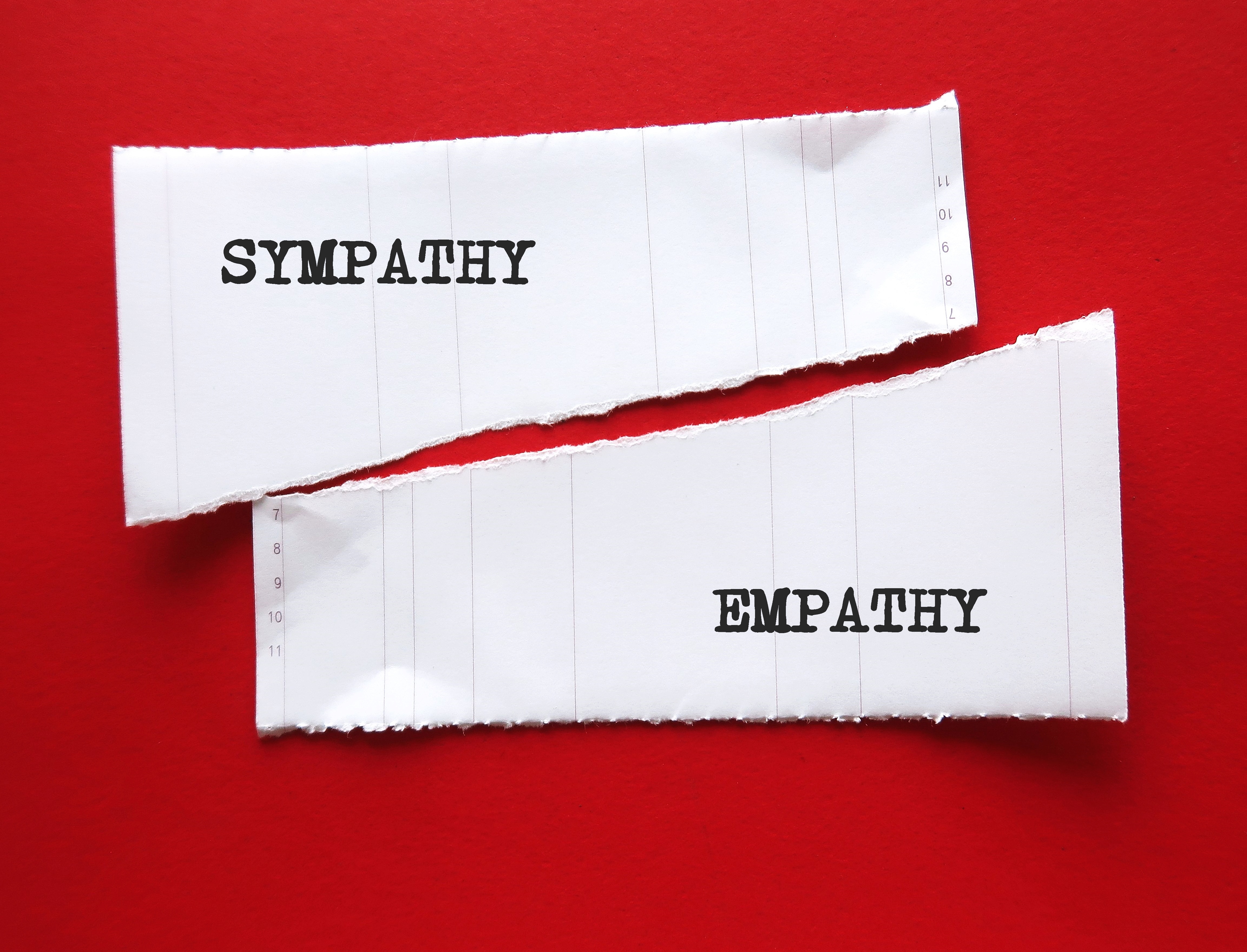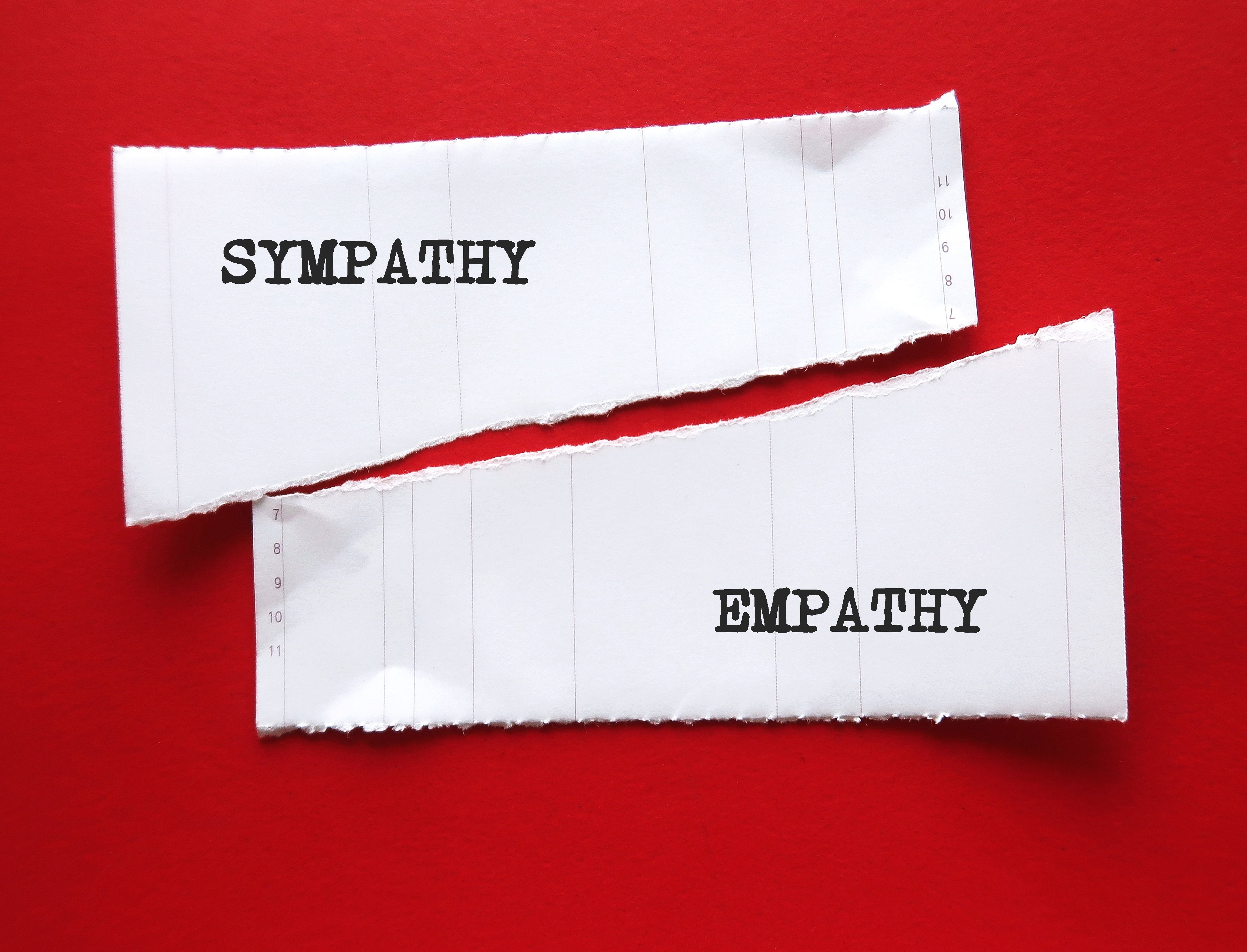Sympathy vs. Empathy in Dementia Care: Understand the Key Differences


Sympathy and empathy are two terms often used interchangeably, but they have distinct meanings and implications in the realm of human emotions and relationships. These differences are not merely linguistic; they carry significant weight when it comes to understanding and responding to the emotions of others. Let's delve into the disparities between sympathy and empathy, and why it is so important to differentiate these two approaches in dementia care.
Sympathy: A Surface-Level Reaction
Sympathy refers to the acknowledgment of another person's suffering or emotional state without necessarily experiencing those feelings personally. It's essentially a surface-level reaction where one person recognizes another's emotions and offers support or comfort from a more detached perspective.
A study published in the journal "Emotion" by Jean Decety and Claus Lamm found that when people express sympathy, they tend to rely on cognitive processes. This means they understand and recognize the emotions of others but don't necessarily share in those emotions on an emotional level. Sympathy often leads to actions like offering condolences, but it lacks the depth of emotional connection that empathy entails.
If we translate this to caring for and community with people living with dementia, it's clear that sympathy is not a productive or positive approach. Thanks to the global efforts of dementia friendly movements, person-centered care practices and holistic approaches, people are often able to enjoy a high quality of life while living with dementia. They don't want people to feel sorry for them, but instead empower themselves and their families with education, tools and avenues for continued opportunities for a positive life path.
Empathy: A Deeper Understanding
Empathy, on the other hand, is a more profound emotional response. It involves not only recognizing another person's feelings but also sharing in those feelings to a reasonable extent. Empathy requires a deeper emotional connection with the other person and the ability to put oneself in their shoes. Simply put, empathy is a deeper dive into truly understanding that person than is sympathy.
Studies using functional magnetic resonance imaging (fMRI) have shown that when individuals experience empathy, their brain activity mirrors that of the person they are empathizing with. This neurological synchrony indicates that the empathizer is not just observing emotions but actively experiencing them, albeit to a lesser degree. This deep connection allows individuals to respond to others in a more emotionally resonant and supportive way.
The key phrase here is experiencing empathy in dementia care. Because most care partners cannot grasp the complexities of dementia, training and education is often difficult to absorb and even more challenging to put learned practices into action. Experiential dementia training is often called the game-changer if helping overwhelmed caregivers gain a foundational, impactful understanding of dementia. The experiential nature of training itself moves the needle on retention from traditional teaching styles. Learn more about experiential learning in dementia care here. 
Why the Difference Matters
Understanding the distinction between sympathy and empathy is crucial because it influences our interactions with others and the quality of emotional support we provide. Data from social psychology experiments consistently demonstrate that people prefer empathy to sympathy when dealing with emotional difficulties. Empathy fosters a stronger sense of connection and emotional validation.
A study published in the "Journal of Personality and Social Psychology" by William Ickes and Nicholas Tooke found that individuals who received empathy reported feeling more understood and supported than those who received sympathy. Empathy fosters a deeper bond between people, as it communicates that the person truly cares about their emotional state.
Moreover, empathy has been linked to enhanced communication and conflict resolution in relationships. In a study published in the "Journal of Counseling Psychology," researchers found that couples who displayed higher levels of empathy experienced more effective communication and conflict resolution, leading to greater relationship satisfaction.
Balancing Sympathy and Empathy
While empathy is often regarded as the superior emotional response, there are situations where sympathy has its merits. Sympathy can be particularly useful in professional settings, where maintaining a certain level of emotional distance may be necessary. Sympathy can also be helpful when someone is experiencing an emotion you haven't personally encountered, making it more challenging to truly empathize.
The distinction between sympathy and empathy is not merely a matter of semantics; it reflects the depth of emotional connection and understanding we offer to others. Empathy, supported by data and studies, goes beyond recognition and delves into shared emotional experiences, making it a more powerful tool for fostering strong relationships and emotional support.
Consider the power of empathy training in dementia care and how using this approach as a foundational training tool for professionals and families can lead to transformational changes in quality of care and improved quality of life for people living with dementia.



